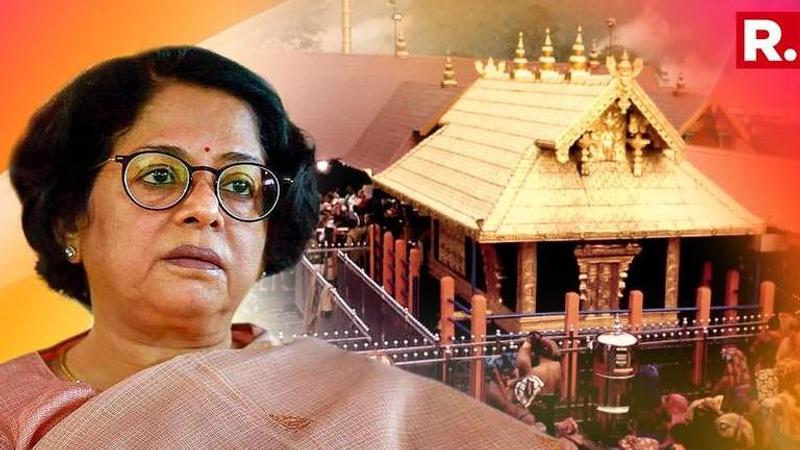Published 15:49 IST, September 28th 2018
Sabarimala Verdict | Justice Indu Malhotra, the only woman judge in Supreme Court’s 5 judge bench, offers dissenting opinion on women’s entry to Sabarimala temple
Even as the Supreme Court in its 4:1 judgment ended the centuries old practice and allowed women of all ages to enter Sabarimala temple, the dissenting opinion came from the only woman judge in the 5-judge bench of Supreme Court, Justice Indu Malhotra.

Even as the Supreme Court in its 4:1 judgment ended the centuries old practice and allowed women of all ages to enter Sabarimala temple, the dissenting opinion came from the only woman judge in the 5-judge bench, Justice Indu Malhotra. As the apex court ruled that the ban on the entry of women to the temple is a clear violation of their right to practice religion under Article 25 of the Constitution, Justice Indu Malhotra said that ‘a balance needs to be struck between religious beliefs on one hand, and the principles of non-discrimination and equality on the other.
While the Chief Justice of India, Dipak Misra, said that “Subversion of women on physiological factors cannot be allowed”, Justice Indu Malhotra held that the issue of religious practices cannot be solely tested on the basis of Article 14 of the Constitution.
“What constitutes essential religious practice is for the religious community to decide, not for the Court”, said Justice Indu Malhotra.
Justice Indu Malhotra also disagreed with the other judges on their observation that Ayyappa devotees do not form a separate denomination and held that they indeed form a separate denomination. Substantiating her point, she also said that constitutional morality has recognised the freedom of every group.
In a historic verdict, the Supreme Court on Friday ended the centuries old practice and allowed women of all ages to enter Sabarimala temple. While terming the ban on women in the age group of 10 to 51 as religious patriarchy, CJI Dipak Misra declared the discriminatory act as unconstitutional and violative of fundamental rights. The CJI also said that it is in clear violation of the fundamental rights of the women.
"The practice in the Sabarimala temple of not allowing women is discriminatory to the woman’s right to practice her religion. Women have fundamental rights to practice their religion. The rule that bans women is in clear violation of it. The practice of exclusion of the women of the age group 10-50 cannot be regarded as an essential religious practice," said CJI Dipak Misra.
Earlier in August, the Supreme Court had said that women have the constitutional right to enter Sabarimala temple in Kerala and pray like men without being discriminated against.
Updated 15:49 IST, September 28th 2018




